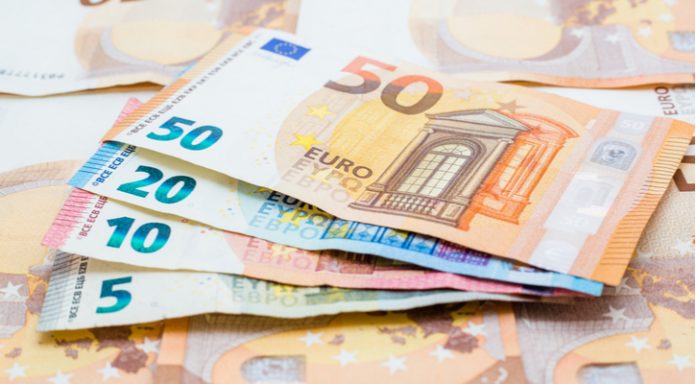The pound grinded lower versus the euro on Tuesday, giving back Monday’s gains. The pound euro exchange rate ended Tuesday at €1.1238, approximately the same level that it started the week on.
| What do these figures mean? |
|---|
|
When measuring the value of a pair of currencies, one set equals 1 unit and the other shows the current equivalent. As the market moves, the amount will vary from minute to minute. For example, it could be written: 1 GBP = 1.13990 EUR Here, £1 is equivalent to approximately €1.14. This specifically measures the pound’s worth against the euro. If the euro amount increases in this pairing, it’s positive for the pound. Or, if you were looking at it the other way around: 1 EUR = 0.87271 GBP In this example, €1 is equivalent to approximately £0.87. This measures the euro’s worth versus the British pound. If the sterling number gets larger, it’s good news for the euro. |
After a relatively quiet start to the week, pound traders are preparing themselves for a more volatile end to the week. So far this week the UK economic calendar has been sparse, leaving investors to focus on Brexit headlines, which have generally had a slightly softer tone, offering some support to sterling.
Today investors will be watching UK inflation figures closely. Analysts are expecting the UK Consumer price index to tick down to 2.4% in August, from 2.5% in July, taking the reading closer to the BoE’s 2% target. Meanwhile analysts are predicting that core inflation, which removes more volatile items such as food and fuel, will tick lower to 1.8% in August, down from 1.9% the previous month.
| Why does poor economic data drag on a country’s currency? |
|---|
| Slowing economic indicators point to a slowing economy. Weak economies have weaker currencies because institutions look to reduce investments in countries where growth prospects are low and then transfer money to countries with higher growth prospects. These institutions sell out of their investment and the local currency, thus increasing supply of the currency and pushing down the money’s worth. So, when a country or region has poor economic news, the value of the currency tends to fall. |
Falling inflation is good for the consumer. This will ease the pressure off the consumer, as wage growth remains higher than inflation. However, falling inflation will not encourage the Bank of England to raise interest rates. For this reason the pound could fall if inflation falls.
Following the inflation reading today, Brexit will bounce back into the headlines as Theresa May meets with her European peers at the Salzburg summit in Austria.
| Why do raised interest rates boost a currency’s value? |
|---|
| Interest rates are key to understanding exchange rate movements. Those who have large sums of money to invest want the highest return on their investments. Higher interest rate environments tend to offer higher yields. So, if the interest rate or at least the interest rate expectation of a country is relatively higher compared to another, then it attracts more foreign capital investment. Large corporations and investors need local currency to invest. More local currency used then boosts the demand of that currency, pushing the value higher. |
Euro In Demand As Dollar Falters
The euro was broadly in demand in the previous session, despite no new data. The euro was receiving some of its strength from the weaker dollar. The euro often trades inversely to the dollar and as the dollar fell on Tuesday, this lifted the euro.
Market participants remain upbeat towards the euro after data earlier in the week showed that inflation was holding steady at 2%. This means that the European Central Bank are also on course to end the bond buying programme at the end of the year. This is the step necessary prior to hiking interest rates, so it is also considered a step in the right direction.
There is no high impacting eurozone data due for release today. ECB Governor Mario Draghi is due to speak, however analysts are not expecting him to touch on monetary policy.
This publication is provided for general information purposes only and is not intended to cover every aspect of the topics with which it deals. It is not intended to amount to advice on which you should rely. You must obtain professional or specialist advice before taking, or refraining from, any action on the basis of the content in this publication. The information in this publication does not constitute legal, tax or other professional advice from TransferWise Inc., Currency Live or its affiliates. Prior results do not guarantee a similar outcome. We make no representations, warranties or guarantees, whether express or implied, that the content in the publication is accurate, complete or up to date. Consult our risk warning page for more details.
This article was initially published on TransferWise.com from the same author. The content at Currency Live is the sole opinion of the authors and in no way reflects the views of TransferWise Inc.





